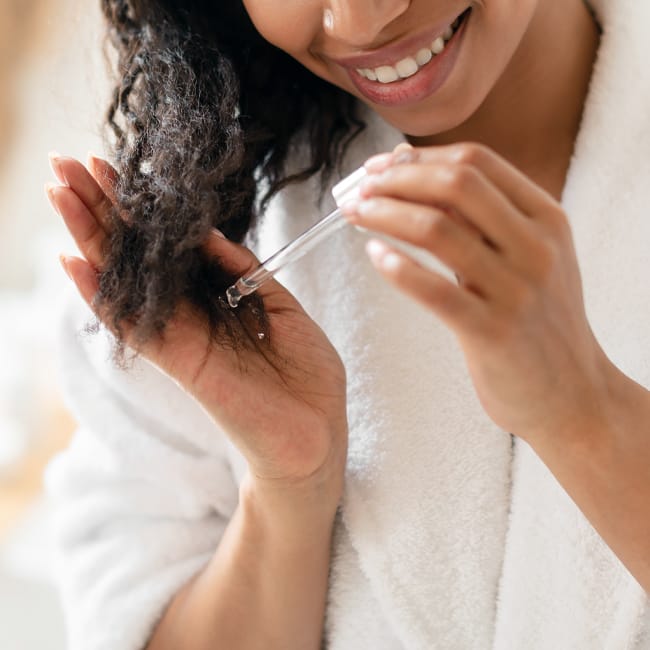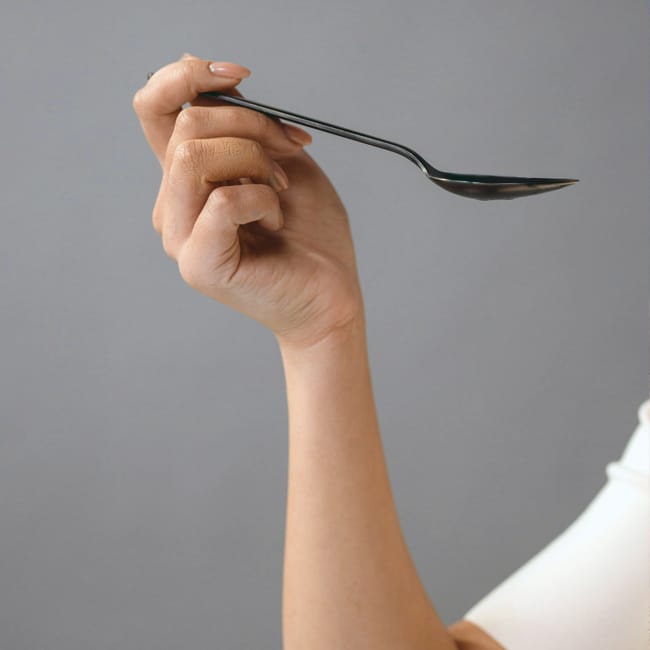This article has been updated since its initial publish date to include more expert insight.
Aging is a natural, inevitable process, but experts say that what we eat can greatly impact the health and appearance of our skin. Many doctors recommend incorporating certain superfoods into our diet to promote youthful-looking and healthier skin.
We caught up with dermatologists to discover ten powerful foods and superfoods that can help improve the look of sagging skin. These foods can also boost collagen and promote graceful aging, giving us the vibrant and healthy skin we desire.
Read on for suggestions and insight from Dr. Anna Chacon, MD, board-certified dermatologist and writer at My Psoriasis Team, Dr. Elaine F. Kung, MD, FAAD, board-certified dermatologist and founder of Future Bright Dermatology, Dr. Emmanuel Loucas, MD, Director of SINY Dermatology and assistant professor of dermatology at Mount Sinai Hospital in New York City, Dr. Enrizza P. Factor, clinical dermatologist and writer at My Eczema Team, and Jess Hernandez, skincare expert and Director of Product Development at City Beauty.


Dermatologist-Recommended: 10 Foods for Anti-Aging and Glowing Skin:
1. Avocados
Avocados are "excellent superfoods for radiant skin" at any age, Chacon says, especially for mature beauties. She recommends "eating them as a snack or in a substantial salad." They are also incredibly high in vitamin E and good fats, she explains.
"You can consume avocados to help shield yourself from aging and sun damage," she points out. Although some avocados are "wrinkled and green," they can make your skin "sparkle and appear younger," she continues.

Your skin's collagen is repaired by vitamin A in avocados, she adds. Since avocados are a good source of monounsaturated fat, they "help you feel fuller for longer and are tougher to overeat because they have a tendency to fill you up," she goes on, stressing that they can also help with general health and weight loss goals as well. "I would advise eating between a half and a whole avocado every day," she suggests. Using avocado oil in cooking and skincare is also a great way to reap the benefits of this fruit.

2. Tomatoes
When thinking of an accessible superfood to add to one's diet for skin health, Chacon recommends tomatoes. "Tomatoes are fantastic components that may be used in a wide variety of recipes," she says, adding that "they are also regarded as a fantastic skin-friendly superfood." They are high in beta carotene and vitamin C, she explains, which "contributes to this in part."

A pigment found in tomatoes called lycopene "helps the skin protect itself from UV damage and increases collagen production twofold," Chacon continues.
Tomatoes, which are high in vitamin C, should be "included in the diet of anyone looking for skin-healthy foods." You can get "numerous vitamins and minerals from eating tomatoes every day," she says, and they're also super easy to add to salads, breakfast bowls, etc.

3. Egg Whites
Collagen and other amino acids that are good for the skin are found naturally in egg whites, Chacon says, which also give you nutritious protein.
"Collagen is the key component in preventing fine lines and wrinkles, and it is believed that this natural supply of collagen from egg whites can aid your body's natural collagen synthesis," she stresses.

When it comes to sagging skin, egg white collagen "increases suppleness, reduces wrinkles and crow's feet around the eyes, and on the face," she notes.
As for how much of these to eat per day, Chacon says that "generally speaking, eating up to seven eggs a week" is great for your skin, and this "won't harm your heart health." Some of her patients "opt to consume egg whites alone, skipping the yolk," which still contains some protein, but no cholesterol.

4. Fatty Fish
When it comes to your skin, there are plenty of benefits offered from fatty fish, Kung says. "Fish is an excellent protein source, which supplies amino acids for our body to make collagen," she notes.
Collagen, she continues, is the protein responsible for supple skin and its elasticity, and can be taken in supplement form daily while also found in many foods.
"Fish skin is a rich source of collagen, and salmon is also an excellent source of omega-3 fatty acids, which may enhance collagen formation," Kung points out.

5. Spinach
Spinach contains "calcium, chloride, iron, magnesium, manganese, potassium, choline, folate, riboflavin, and vitamins A, C, E, K, B6," which Kung says are all vital regarding the appearance of your skin, hair and nails.
"Foods that contain vitamins A, C, E and carotenoids are wonderful for skin health and prevent skin aging because they are potent antioxidants," Kung adds.
She tells us that vitamins A, C, E and E prevent "discoloration and pigmentary changes that ages our appearance." Vitamin C in particular, she reiterates, is a "really important part" of collagen synthesis.

6. Blueberries
Since it isn't possible to completely prevent wrinkles from forming with age, staying hydrated and eating a myriad of nutrient-rich fruit is key to maintain a youthful glow. One fruit that is linked to supporting collagen synthesis and that contains healthy antioxidants is blueberries.
Loucas explains that they are "thick in antioxidants, which help protect the skin from daily environmental and internal insults." Additionally, blueberries are rich in vitamin A & C, and the latter fights collagen breakdown.
Loucas says that blueberries are also well-known to have anti-inflammatory properties. "Inflammation is a common denominator for many skin ailments including photoaging, eczema, acne, and rosacea, just to name a few," he points out.

7. Pomegranates
Factor notes that you’ve probably heard the saying, "you are what you eat." When it comes to "how well your skin ages, this is especially true," she says. She adds that pomegranates are "high in anti-inflammatory or antioxidant properties" that may "improve the skin’s elasticity and protect against skin damage and premature aging."
Eating just one pomegranate gives you about "28 mg of vitamin C," according to WebMD, which is almost "50 percent of your daily recommended intake."
Adding more vitamin C to your diet through pomegranates can "be effective at preventing the onset of wrinkles," Factor continues. She stresses that this eating this nutrient, along with "drinking plenty of water, protecting your skin from the sun, not smoking, and managing your stress" plays a key role when it comes to "keeping your skin healthy and youthful."

8. Quinoa
When preparing bowls or salads, Hernandez suggests adding quinoa to your dishes for a more glowing complexion. Quinoa, Hernandez says, is "a great source of plant-based protein, and it's an excellent food for glowing skin."
This ancient grain is one of the greatest dietary sources of riboflavin, she explains, which helps in "keeping skin firm" while also potentially lessening the "appearance of wrinkles and fine lines."

9. Beans & Legumes
To follow a healthy diet that will "optimize skin health," Factor says "you should consume foods rich in antioxidants and anti-inflammatory properties." While beans and legumes might not be the first foods that come to mind when thinking of glowing skin, eating these often can lead to that, Factor stresses.
She says that "legumes like black beans, navy beans, chickpeas, kidney beans, peas and lentils" are all great foods to keep in mind for supple skin.

10. Eggs
While Chacon stressed that egg whites are an optimal choice for skin health, Kung notes that eggs prepared in other ways (including scrambled, sunny side up, omelets, etc.) can be just as beneficial for your complexion.
Kung says that vitamin D in eggs has been "shown to protect the skin from UV damage and reduce inflammation." Eggs also contain "oleic acid and palmitic acid," which Kung explains are important for maintaining our skin's lipid layer.
"Eggs contain B vitamins which are important antioxidants, help skin retain moisture, and repairs DNA damage," she stresses, and zinc is "another key mineral in healthy collagen production."
The more you know!


























